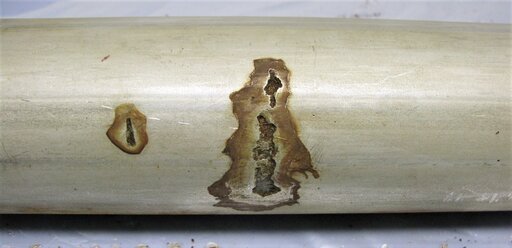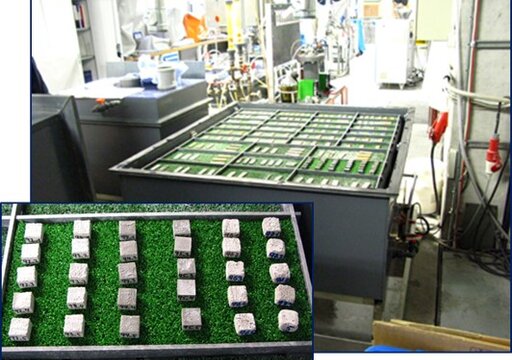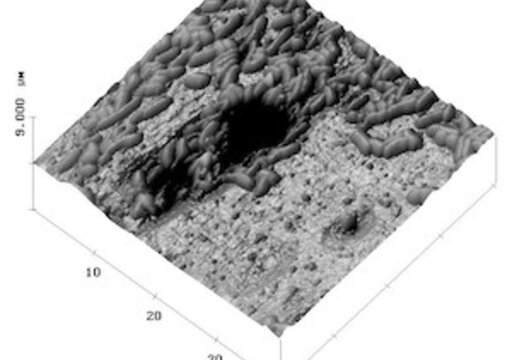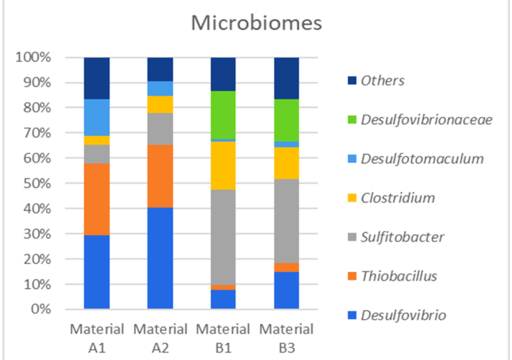
We are experts in investigations with specialized testing methods about biocorrosion of various materials e.g., concrete and steel. We test sediments for the risk of microbially influenced corrosion and carry out material testing of concrete formulations in cooperation with the Fraunhofer Institute UMSICHT. Damage investigation is also part of our service program if the question is whether a microbiologically influenced corrosion case is involved.
Investigation of microbially induced metal corrosion
incl. qualitative and quantitative evidence of corrosion-relevant microorganisms
In principle, any material can become contaminated with microorganisms in the presence of water or a medium that contains water; these then live embedded as a consortium in a biofilm that adheres to the surface of the material and can influence the integrity of the substrate (microbially influenced corrosion, MIC). Experience has shown that bacteria in the biological sulfur, nitrogen, iron and manganese cycles play an important role in MIC on metallic materials. The metabolites associated with the proliferation of these microorganisms evince strong corrosive properties, since their high oxidation potential directly supports the cathodic sub-process of metal dissolution and their acidity accelerates the process of acid corrosion.
We can provide the following services to help clarify cases of damage (proof of MIC causality):
- Sampling
- Analysis of corrosion products
- Identification of harmful organisms that influence corrosion (qualitative and quantitative)
- Investigations to determine corrosion rates
- Risk assessments
- Proposals for MIC countermeasures
Examples of applications: MIC in offshore foundation structures, MIC in harbor sheet pile walls, MIC in drinking water pipes, MIC in heating systems

Material testing to determine biogenic sulfuric acid corrosion
in mineral materials consisting of mortar or concrete
Biogenic sulfuric acid corrosion (BSA) is a form of damage that occurs in cementitious materials in sewage systems, building drainage systems, sewage treatment plants and biogas plants. Sulfuric acid leads to combined chemical and biological attacks on the surface of the material. The sulfuric acid is the result of various metabolic processes in the biological sulfur cycle, which is controlled by sulfate-reducing (SRB) and sulfur-oxidizing (SOB) bacteria. To expose samples of mineral materials made of concrete or mortar to real-life, accelerated, reproducible BSA, Fraunhofer UMSICHT collaborated with Dr. Brill + Partner GmbH to develop a test rig and procedure that allow test samples to be stored and weathered in a realistic corrosive gas environment (hydrogen sulfide) with SOB typically found in sewage (Thiobacillus). By analyzing and investigating various parameters, the procedure allows conclusions to be drawn regarding the suitability of the material in terms of BSA and suggests optimization potential for the further development of material compounds.
Our services:
- Production of a defined bacterial inoculum using pure strains cultivated from sewage (Brill)
- Performance of weathering tests (Fraunhofer)
- Accompanying microbiological analyses (Brill)
- Determination of loss of mass and estimate of corrosion rates (Brill, Fraunhofer)
- 3D scan of sample surface (Fraunhofer)
The website of the Fraunhofer Institute for Environmental, Safety and Energy Technology UMSICHT on the subject of material testing under the influence of biogenic sulphuric acid corrosion can be found here: LINK

Accompanying microbiological and chemical analyses
- Microcalorimetry: Collection of caloric data from microbially contaminated materials, rapid test of microbial metabolic activity, validation of disinfectant measures and anti-adhesive coating systems
- Fluorescence microscopy (FM): Visualization of microbial biofilms following DAPI staining and assessment of colonization density
- Atomic force microscopy (AFM): Testing material integrity by measuring surface topography (visualization of surface flaws and patches of corrosion)
- Flame atomic absorption spectometry (AAS): Metal analysis
- Ion exchange chromatography (IC): Anion analysis
- High performance liquid chromatography (reversed-phase HPLC-DAD): Sulfur analysis
- Carbon analyzers (TOC, DOC): Determination of nutrients in (microbially contaminated) waters or soils, validation of cleaning measures

Molecular biological analyses
We offer modern molecular biological techniques for all questions concerning corrosion, biofilm formation and material testing. Use our quantitative PCR (qPCR) and Next-Generation-Sequencing techniques (NGS) services to obtain the bacterial load and a comprehensive picture of the microbial biocoenosis (microbiome). In the microbiome, we identify marker organisms or complex networks indicative of corrosion processes. We perform your microbiome analyses including bioinformatic analyses. In addition, we offer identification of bacteria and fungi by Sanger sequencing. Application examples:
- Causality proof of microbially induced corrosion damage (MIC).
- Taxonomic characterization of biofilms.
- Quantification of corrosion-relevant organisms using marker genes.

